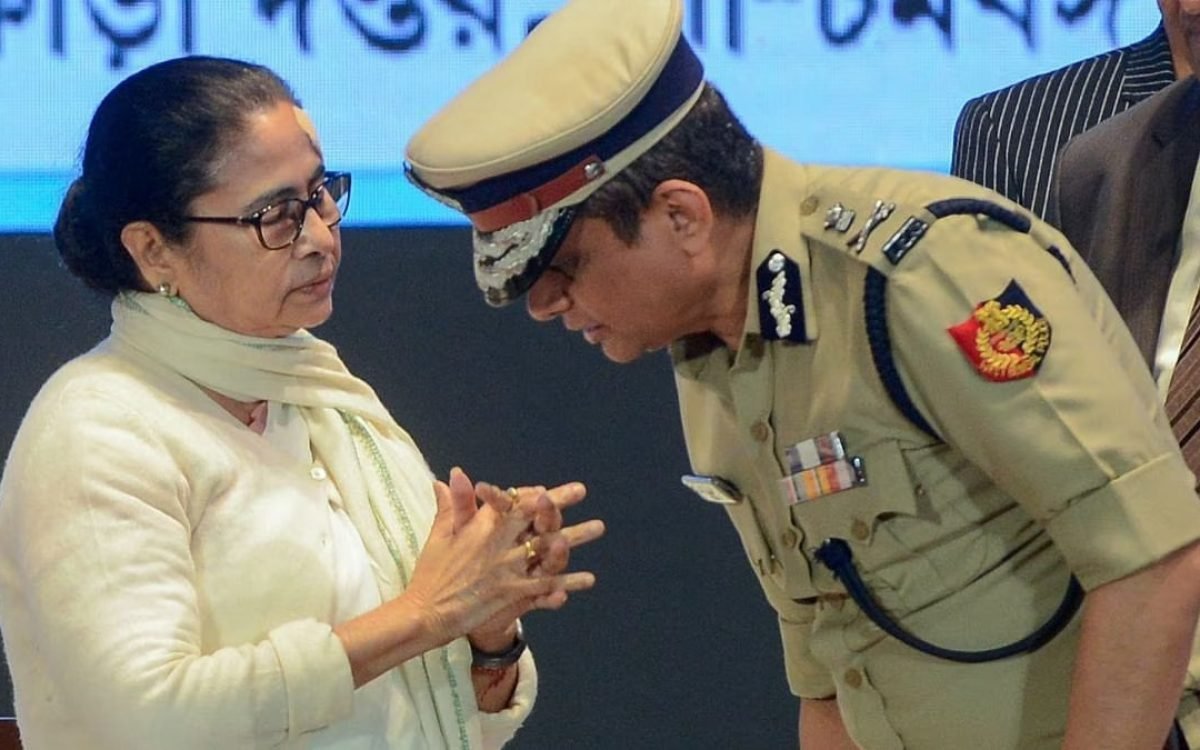In the high-stakes world of Indian politics, few figures evoke as much controversy and intrigue as Rajeev Kumar, the former Director General of Police (DGP) of West Bengal. With a career marked by both acclaim and scandal, Kumar’s journey from a distinguished police officer to a central figure in the Saradha chit fund scam saga reflects the complex dynamics of power, politics, and governance in the state.
Early Career and Rise to Prominence
Rajeev Kumar, a 1989-batch IPS officer from the West Bengal cadre, emerged as a promising talent early in his career. Graduating from the prestigious Indian Institute of Technology (IIT) Roorkee, Kumar’s intellect and dedication propelled him through the ranks of the police force. His tenure in various capacities, from Sub-Divisional Police Officer (SDPO) to Deputy Inspector General (DIG), showcased his capabilities in handling diverse challenges within the realm of law enforcement.
Controversies and Allegations
However, Kumar’s ascent to power was not devoid of controversy. His alleged involvement in surveillance activities targeting political figures, including then Union Railways Minister Mamata Banerjee, sparked tensions and raised questions about his impartiality. Despite these allegations, Kumar managed to maintain a favorable relationship with Mamata Banerjee, who eventually appointed him as the first commissioner of Bidhannagar Police Commissionerate in 2012.
The Saradha Chit Fund Scam: A Turning Point
It was Kumar’s role in the investigation of the Saradha chit fund scam that thrust him into the national spotlight and embroiled him in a bitter confrontation between the central government and the West Bengal administration. Tasked with heading the Special Investigation Team (SIT) to probe the scam, Kumar’s actions and decisions came under intense scrutiny.
His arrest of key figures implicated in the scam, including Saradha Group chairman Sudipto Sen and Trinamool Congress MP Kunal Ghosh, initially bolstered his reputation as an efficient law enforcement officer. However, the controversy reached a boiling point when the Central Bureau of Investigation (CBI) sought to interrogate Kumar in connection with the case.
Standoff with the Central Government
In February 2019, tensions escalated dramatically when a team of CBI officers attempted to question Kumar at his official residence. The subsequent detention of the CBI officers by the local police, under Kumar’s jurisdiction, triggered a full-blown standoff between the West Bengal government and the central authorities.
Mamata Banerjee’s unequivocal support for Kumar, exemplified by her public endorsement and symbolic gesture of pinning a police medal on him during a street protest, underscored the deep-rooted political ramifications of the controversy. The incident not only strained the already fragile relations between the Centre and the state but also reignited debates over the autonomy of law enforcement agencies and the extent of political interference in their functioning.
Removal from Election Duties
The Election Commission of India’s decision to remove Rajeev Kumar from election-related duties on multiple occasions further underscored the concerns surrounding his impartiality and proximity to the ruling party in West Bengal. Despite his undeniable capabilities as a law enforcement officer, the recurring controversies surrounding Kumar raised serious questions about the integrity and fairness of electoral processes under his purview.
Public Perception and Political Fallout
The polarized reactions to Kumar’s actions and the broader implications of his involvement in the Saradha chit fund scam highlighted the deep-seated divisions within West Bengal’s political landscape. While supporters lauded his investigative prowess and commitment to upholding law and order, critics raised allegations of partisan behavior and undue influence over crucial legal proceedings.
The intertwined nature of politics and law enforcement in West Bengal further complicated the situation, with rival parties seizing upon the controversy to score political points and undermine their opponents’ credibility. The Bharatiya Janata Party (BJP), in particular, capitalized on the controversy surrounding Kumar to bolster its narrative of rampant corruption and maladministration under the Trinamool Congress-led government.
Legacy and Future Prospects
As Rajeev Kumar navigates the aftermath of his tumultuous tenure as West Bengal’s DGP, his legacy remains a subject of intense debate and speculation. While some view him as a victim of political vendetta and unwarranted persecution by central agencies, others question his conduct and integrity in the face of mounting allegations of misconduct and impropriety.
The future trajectory of Kumar’s career hinges on a delicate balance of legal proceedings, public perception, and political maneuvering. Whether he will emerge unscathed from the controversies that have engulfed him or fade into obscurity remains to be seen. However, one thing is certain: the saga of Rajeev Kumar serves as a poignant reminder of the intricate nexus between power, politics, and justice in contemporary India.









